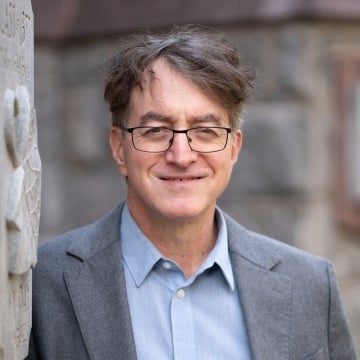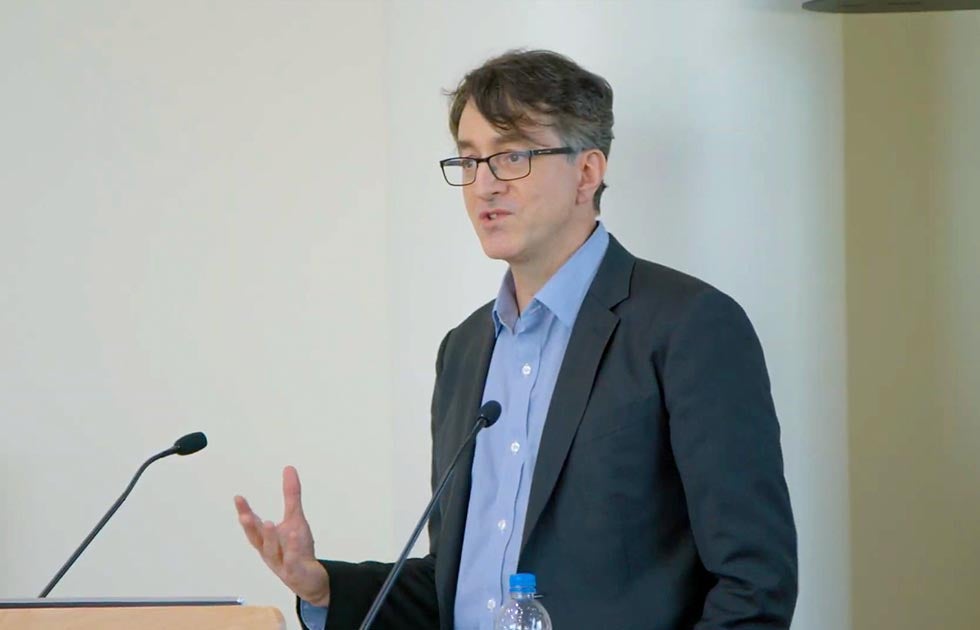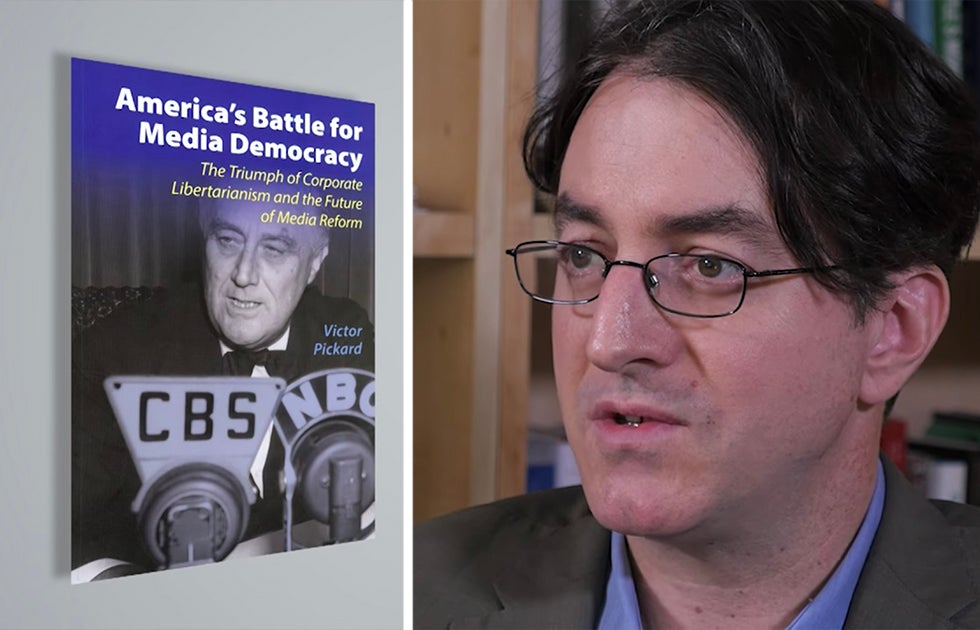
Victor Pickard, Ph.D.

- C. Edwin Baker Professor of Media Policy and Political Economy
- Co-Director, Media, Inequality & Change Center
Victor Pickard is the C. Edwin Baker Professor of Media Policy and Political Economy at the Annenberg School for Communication, where he co-directs the Media, Inequality & Change (MIC) Center.
Prior to joining Penn in 2011, he taught at NYU and the University of Virginia and worked on media policy in Washington, D.C. as a Senior Research Fellow at the think tank New America and at the media reform organization Free Press (whose board he now chairs), and as a Policy Fellow for Congresswoman Diane Watson. He has held visiting appointments at Cornell, Goldsmiths, and LSE.
Pickard has authored or edited six books, including the award-winning monographs Democracy Without Journalism? Confronting the Misinformation Society (Oxford University Press, 2020) and America’s Battle for Media Democracy: The Triumph of Corporate Libertarianism and the Future of Media Reform (Cambridge University Press, 2015). Other books include After Net Neutrality: A New Deal for the Digital Age (with David Berman; Yale University Press, 2019), Will the Last Reporter Please Turn out the Lights (with Robert McChesney; The New Press, 2011), The Future of Internet Policy(with Peter Decherney; Routledge, 2016), and Media Activism in the Digital Age (with Guobin Yang; Routledge, 2017).
Pickard’s research on media history, media activism, and journalism’s normative role in democratic societies has been published in more than 200 articles, essays, reviews, and book chapters in leading scholarly journals, anthologies, and popular magazines. He also has co-authored four major policy reports. In 2009, he was the lead author of the first comprehensive report on the American journalism crisis, “Saving the News: Toward a National Journalism Strategy” (with Josh Stearns and Craig Aaron; published by Free Press). In 2017, he co-authored “Essential Principles for Contemporary Media and Communications Policymaking” (with Robert Picard; published by the Reuters Institute, University of Oxford). In 2018, he co-authored “The Media Democracy Agenda: The Strategy and Legacy of FCC Commissioner Michael Copps” (with Pawel Popiel; published by the Benton Foundation). Most recently, he co-authored a report on the political economy of US media (with Bilal Baydoun and Shahrzad Shams; published by the Roosevelt Institute). Pickard’s research has received support from the Democracy Fund, the Independent Public Media Foundation, the Social Science Research Council, the Knight First Amendment Institute, and the National Endowment for the Humanities, among others.
Pickard has delivered over a hundred invited lectures and keynote addresses and more than a hundred refereed paper presentations at conferences and on campuses around the world. He was invited to give the Pockrass Distinguished Lecture at Penn State University and the Dallas Smythe Memorial Lecture at Simon Fraser University. He has received numerous awards for his scholarship, including the Frank Luther Mott/Kappa Tau Alpha Journalism book award and a James Tankard finalist book award. He also received the ICA Journalism Studies Public Engagement Award and the Harry W. Stonecipher Award for Distinguished Research on Media Law and Policy. In 2024, Pickard was inducted into the University of Washington Alumni Hall of Fame. In 2025, he received a C. Edwin Baker Award for the Advancement of Scholarship on Media, Markets and Democracy.
Pickard sits on the editorial board of 13 communication journals and book series and serves on numerous boards, working groups, and committees focused on democratizing media policy. He frequently advises and collaborates with activists, policymakers, journalists, and community groups to advocate for structural media reform. Since 2012, he has co-directed the annual Consortium on Media Policy Studies (COMPASS) program in Washington D.C. He has served on dozens of dissertation committees at Annenberg and other universities in the U.S., the U.K., the Netherlands, and Spain. He also serves as a judge for the annual Izzy Awards for independent journalism.
As a leading expert on the politics of media policy—especially related to topics such as democratic theory, journalism history, and public media—Pickard maintains an active profile as a public scholar. He has been quoted hundreds of times in major news media and interviewed widely about his research for leading news organizations such as NPR, Pacifica, Last Week Tonight with John Oliver, The Wallstreet Journal, and The New York Times. He has been featured in several documentaries about the future of journalism and has appeared on a range of television news shows, including on MSNBC, C-SPAN, and the PBS News Hour. Pickard often publishes op-eds and essays in popular venues like The Guardian, The Washington Post, Columbia Journalism Review, NiemanLab, Common Dreams, The Conversation, U.S. News & World Report, The Seattle Times, The Huffington Post, Monthly Review, The Philadelphia Inquirer, Harvard Business Review, Jacobin, The Progressive, The Nation, and The Atlantic. Currently he is working on a book about the history and political economy of capitalist media institutions that examines how and why commercial media so frequently fail to serve democratic needs.
Education
- B.A., Allegheny College, 1995
- M.A., University of Washington, Seattle, 2003
- Ph.D., University of Illinois, Urbana, 2008
Selected Publications
Democracy without Journalism? Confronting the Misinformation Society. Oxford University Press, 2019.
After Net Neutrality: A New Deal for the Digital Age. Yale University Press, 2019.
Courses
- COMM 2600 Media Activism Studies
- COMM 3600 Understanding the Political Economy of Media
- COMM 7010 Introduction to the Political Economy of Media
- COMM 7020 Media, Capitalism, and Democracy
- COMM 6980 The History of Capitalist Media Institutions and Their Discontents

To Save the Media, Ditch Capitalism, a New Study Says
In a new paper, Professor Victor Pickard argues for a more democratic media system.






